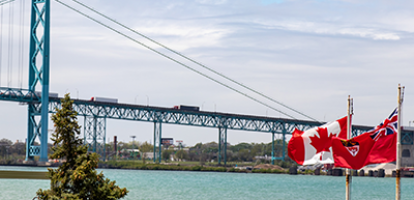From: Ben Brunnen
To: Jonathan Wilkinson, Minister of Natural Resources, Chrystia Freeland, Deputy Prime Minister and Minister of Finance, and Steven Guilbeault, Minister of Environment and Climate Change
Date: June 28, 2023
Re: The Case for Supporting Canada’s LNG Industry
Canada’s liquefied natural gas (LNG) industry has the potential to make a significant contribution to meet current and future global energy needs, while also reducing global emissions, ensuring energy affordability, enhancing global energy security and delivering significant benefits to Canadians.
While the global energy mix is evolving, natural gas will play a critical role in meeting global energy demand in every scenario. Under the International Energy Agency’s stated policy scenario, which is based on current policies in place, by 2050 hydrocarbons will comprise at least 62 percent of the energy mix, and natural gas demand will increase by 3.4 percent.
Global LNG demand is expected to grow by 37 percent by 2050, which presents a compelling case for Canada to act.
LNG Benefits
The benefits of Canadian LNG are compelling:
- Natural gas is abundant, has a high energy density, and emits the lowest pounds of carbon dioxide per million British thermal units (BTUs) among all hydrocarbons. It can serve as a backstop for renewable fuels in electricity generation, and is widely regarded as an emissions-efficient substitute for coal.
- Natural gas is affordable, comparable in cost to coal and oil, and North America can meet more than 30 years of LNG demand at a cost below US$3 per million BTUs.
- Canada can be a secure supplier to Europe and southeast Asia. Because of the Russian invasion of Ukraine:
- Commodity prices have spiked – particularly natural gas prices in Europe, eroding affordability.
- The United States has supplied two-thirds of Europe’s incremental LNG imports in 2022 alone, while Canada sits on the sidelines.
- Countries are rationing industrial energy consumption, and choosing higher emitting sources. Coal consumption in China, India, the U.S. and the EU has increased since 2020.
- India and China have increased imports of discounted Russian oil by 40 and 20 percent respectively. Accessing affordable sources and sufficient supply is key for these countries.
This is both an opportunity and obligation for Canada, as there will be geopolitical ramifications if Russia builds stronger energy linkages into growing Asian markets.
Benefits for Canada
In 2022, Canada produced 17.3 billion cubic feet (bcf) a day of natural gas, and is the sixth largest producer globally. Canada has an additional 1,373 trillion cubic feet available for future production – which represents 217 years of additional supply at current production levels. While Canada is not yet involved in LNG export, it does contribute about 7 percent of total US natural gas supply, some of which is used in US LNG facilities. However, there is not enough pipeline capacity to take advantage of this opportunity long term.
A number of LNG projects are advancing in British Columbia and 6.4 bcf a day of capacity could be completed within the decade. The benefits include:
- LNG produced on Canada's West Coast could create up to 65 percent fewer greenhouse gases than coal when used to generate electricity.
- Canadian LNG projects have the lowest emission intensity of any in the world.
- If 6 bcf a day of capacity were developed, BC would earn $1.8 billion in incremental government revenue, followed by the federal government at $1.5 billion.
LNG benefits extend deeply to Indigenous communities as well, with BC LNG projects driving an increased focus on Indigenous-led major projects, Indigenous equity options in LNG facilities and associated infrastructure, and Indigenous-led environmental assessments.
What is needed is the right level of focus and support from governments.
Recommendations
- Take a full value proposition approach to Canada’s LNG opportunity. Our allies are seeking reliable energy partners who can be a secure and affordable supplier, while adhering to strong environmental, social and governance performance. These considerations should underpin a strategic approach and prioritization of LNG development in federal energy policies – including the regulatory environment, international relations, fiscal and climate policy, and sustainable finance.
- Create an effective regulatory framework for advancing LNG projects. The regulatory approval process for major energy projects in Canada is perceived as lengthy, burdensome, uncertain and uncompetitive. Canada needs an LNG regulatory framework that is timely, efficient, predictable, reliable and encourages investment, while also adhering to our high ESG standards.
- Work with export allies such as the US and potential customers in Europe and Asia to credit Canada for displacing higher emitting energy sources as a result of Canadian LNG exports.
Ben Brunnen is a Senior Fellow at the C.D. Howe Institute, and Principal and Founder of Verum Consulting. This Memo is based on Canada’s LNG Opportunity: A Value Proposition Worth Celebrating, a report funded by Energy for A Secure Future.
To send a comment or leave feedback, email us at blog@cdhowe.org.
The views expressed here are those of the author. The C.D. Howe Institute does not take corporate positions on policy matters.





